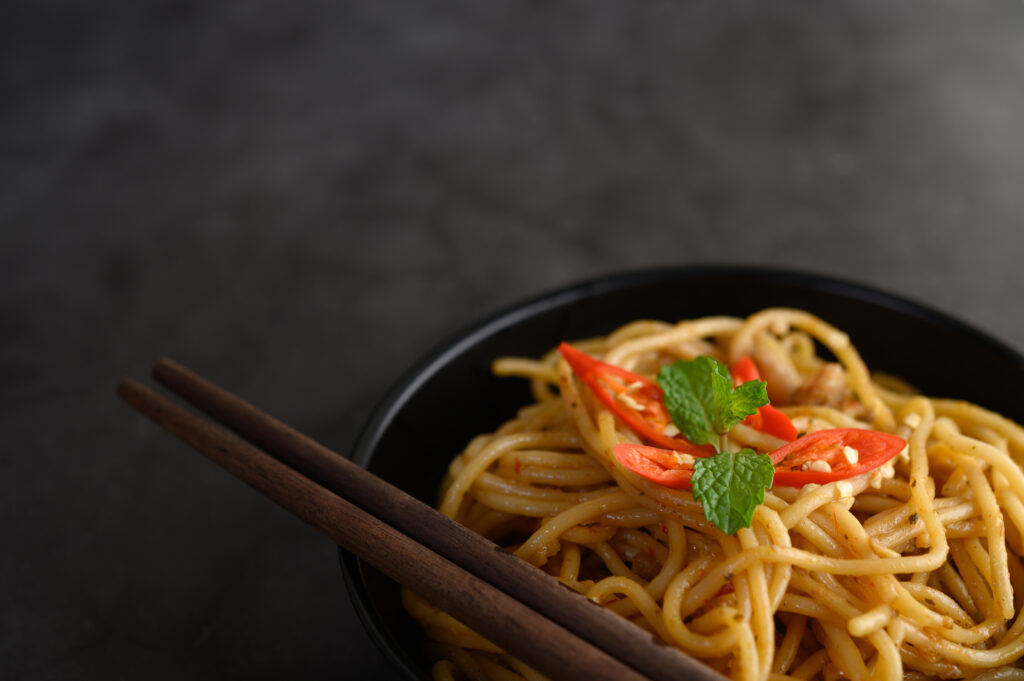The Instant Noodle Dilemma: Unpacking the Risks and Rewards of a Daily Habit
In today’s fast-paced world, instant noodles have become a staple in many households. They’re quick, easy, and affordable – a perfect solution for busy lives. But have you ever stopped to think about the implications of making instant noodles a daily part of your diet? As we dive into the world of instant noodles, let’s explore the nutritional content, potential health risks, and benefits associated with regular consumption. By the end of this article, you’ll be well-equipped to make informed decisions about your dietary choices.
Nutritional Content: What’s in Your Instant Noodles?

A typical serving of instant noodles (about 70-80 grams) contains:
- Calories: 350-400
- Carbohydrates: 50-60 grams
- Fat: 12-15 grams (mostly saturated)
- Sodium: 1500-2000 milligrams
- Protein: 5-8 grams
- Fiber: 1-2 grams
- Vitamins and minerals: often lacking or present in minimal amounts
As you can see, instant noodles are high in calories, carbohydrates, and sodium, but low in essential nutrients like protein, fiber, and vital vitamins and minerals. This nutritional profile raises concerns about the long-term effects of daily consumption.
Potential Health Risks: The Dark Side of Instant Noodles
While instant noodles might be a convenient solution for a quick meal, regular consumption can lead to several health issues:

- Weight Gain: With high calorie and carbohydrate content, instant noodles can contribute to weight gain if consumed excessively. A study published in the Journal of Nutrition found that frequent consumption of instant noodles was associated with an increased risk of obesity and metabolic syndrome.
- Sodium Overload: The high sodium content in instant noodles can lead to hypertension, heart disease, and stroke. The American Heart Association recommends limiting daily sodium intake to less than 2300 milligrams, and instant noodles account for a significant portion of this limit.
- Micronutrient Deficiencies: Regularly consuming instant noodles can lead to deficiencies in essential vitamins and minerals, particularly if your diet is lacking in nutrient-dense foods. This is especially concerning for individuals who rely heavily on instant noodles as a primary food source.
- Impact on Gut Health: Some research suggests that the high sodium and preservative content in instant noodles may negatively affect gut health, leading to digestive issues and other problems.
Benefits of Instant Noodles: Are There Any?
While instant noodles are often viewed as a nutritional villain, there are some benefits to consider:
- Convenience: Instant noodles are quick and easy to prepare, making them a great option for busy lives.
- Affordability: Instant noodles are often cheaper than other meal options, which can be a significant factor for those on a tight budget.
- Energy Boost: The high carbohydrate content in instant noodles can provide a temporary energy boost, which might be beneficial for individuals with high energy demands.
Making Instant Noodles a Healthier Option
If you’re a fan of instant noodles and want to make them a healthier part of your diet, consider these tips:
- Add Nutrient-Dense Ingredients: Throw in some frozen vegetables, lean protein sources (like chicken or tofu), or a fried egg to increase the nutritional value of your meal.
- Use Less Seasoning: Try using less of the seasoning packet to reduce sodium intake. You can also experiment with herbs and spices to add flavor without the extra salt.
- Balance Your Diet: Make sure to balance your instant noodle consumption with nutrient-dense foods, including fruits, vegetables, whole grains, lean proteins, and healthy fats.
- Choose Better Options: Opt for instant noodles that are lower in sodium and saturated fat. Some brands offer healthier alternatives, so be sure to read labels carefully.
Can You Eat Instant Noodles Every Day?
Given the potential health risks associated with regular instant noodle consumption, it’s essential to approach this food with caution. While an occasional serving of instant noodles is unlikely to cause harm, making them a daily staple can lead to nutritional deficiencies, weight gain, and other health issues.
If you’re considering eating instant noodles every day, ask yourself:
- Are you balancing your diet with nutrient-dense foods?
- Are you taking steps to mitigate the negative effects of high sodium and saturated fat?
- Are you aware of the potential long-term health risks?
By being mindful of these factors, you can make informed decisions about your dietary choices. If you’re looking to incorporate instant noodles into your diet, consider them an occasional convenience rather than a daily staple.

Instant noodles can be a part of a healthy diet when consumed in moderation and balanced with nutrient-dense foods. While they’re not the most nutritious option, they do offer convenience and affordability. By being aware of the potential health risks and taking steps to mitigate them, you can enjoy instant noodles as an occasional treat. Remember to prioritize whole, nutrient-rich foods and strive for balance in your diet. With a little creativity and mindfulness, you can make instant noodles a healthier and more sustainable part of your meal routine.





